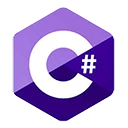Exception handling is a critical aspect of C# programming. In this guide, you'll learn about exceptions, how to handle them, and best practices for dealing with unexpected errors in your code.
What is an Exception?
An exception is an unexpected or abnormal event that occurs during the execution of a program. Exceptions can be caused by various factors, such as invalid input, file not found, or division by zero. When an exception occurs, the program's normal flow is interrupted.
Types of Exceptions
C# has a rich set of built-in exceptions, which are organized into a hierarchy. Some common types of exceptions include:
- System.Exception: The base class for all exceptions.
- System.NullReferenceException: Occurs when attempting to access a null object reference.
- System.DividedByZeroException: Occurs when dividing a number by zero.
- System.IO.IOException: Occurs when working with input/output operations, such as file access.
- System.ArgumentException: Occurs when an invalid argument is passed to a method.
Handling Exceptions
You can handle exceptions using a try-catch block. The try block contains the code that might raise an exception, and the catch block contains the code to handle the exception when it occurs.
Example of exception handling:
try
{
int x = 10;
int y = 0;
int result = x / y; // This line will cause a DivideByZeroException.
}
catch (DivideByZeroException ex)
{
Console.WriteLine("Error: " + ex.Message);
}
Using Finally
You can also use a finally block to ensure that specific code is executed, regardless of whether an exception occurred. The code in the finally block is always executed, even if there is no catch block for the exception.
Example with a finally block:
try
{
// Some code that might throw an exception.
}
catch (Exception ex)
{
// Handle the exception.
}
finally
{
// This code always runs.
}
Best Practices
When working with exceptions in C#, consider the following best practices:
- Handle exceptions that you can anticipate to provide a better user experience.
- Avoid catching generic exceptions like `Exception` unless necessary. Be specific about the exception types you catch.
- Log exceptions for debugging and troubleshooting purposes.
Conclusion
Exception handling is a vital skill in C# programming. You've learned about exceptions, how to handle them using try-catch blocks, and best practices for dealing with unexpected errors. Proper exception handling can make your applications more robust and user-friendly.
Practice incorporating exception handling in your C# programs to ensure they can gracefully handle unexpected situations. As you continue your programming journey, you'll encounter more complex scenarios and strategies for managing exceptions.

